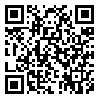BibTeX | RIS | EndNote | Medlars | ProCite | Reference Manager | RefWorks
Send citation to:
URL: http://jdisabilstud.org/article-1-3484-en.html
2- Assistant Professor, Department of Psychology, Faculty of Humanities, Khayyam University, Mashhad, Iran
3- Assistant Professor, Department of Psychology, Faculty of Medicine, Tehran Medical Sciences, Islamic Azad University, Tehran, Iran
Abstract
Background & Objectives: Oppositional defiant disorder is a persistent pattern of hostile, negative, and deviant behavior associated with extensive psychosocial problems. Considering the signs and symptoms such as anger outbursts, not following norms, and inability to control behavior in people with oppositional defiant disorder, there is a possibility of cognitive distortions and irrational beliefs in these people. Irrational beliefs are false and inconsistent thoughts about oneself and the world. Accordingly, it is essential to use effective interventions to improve irrational beliefs. So, the present study aimed to determine the effectiveness of social-emotional skills training on the irrational beliefs of junior high school male students with oppositional defiant disorder.
Methods: This quasi-experimental study employed a pretest-posttest design with a control group. The statistical population consisted of all the boys with oppositional defiant disorder in the first year of high school in Babolsar County, Iran, in 2023. Among the statistical population, 30 qualified volunteers were selected by purposive sampling based on the Oppositional Defiant Disorder Rating Scale (Hommersen et al., 2006). They entered the study and were randomly assigned to the experimental and control groups (each group included 15 people). The inclusion criteria were as follows: having oppositional disobedience disorder, being in the first year of high school, providing parental consent to participate in the research, and lacking other acute and chronic psychological disorders. The exclusion criteria for teenagers to leave the research included not attending two training sessions and not cooperating or not performing specified tasks during the training period. This research observed ethical standards including obtaining informed consent and guaranteeing privacy and confidentiality.
Also, the participants were free to withdraw or provide personal information during the research. They were assured that the information would remain confidential and that it would be fully respected. After the end of the research, social-emotional skills training was implemented for the people in the control group. Both groups completed the Irrational Beliefs Test-Ahvaz (Motamedin et al., 2012). The social-emotional skills training program was implemented for the experimental group in 12 60-minute sessions, and every session was held once a week. However, the control group did not receive any treatment plan. Data analysis was carried out in two parts: descriptive statistics and inferential statistics. At the level of descriptive statistics, frequency, mean, and standard deviation were calculated. For the inferential statistics, an analysis of covariance was used. Data analysis was done in SPSS software version 27, and the significance level of the tests was considered to be 0.05.
Results: The analysis of the data showed that the score of the irrational beliefs in adolescent boys with oppositional defiant disorder in the intervention group and after receiving treatment decreased significantly compared to the control group (p<0.001). The results related to the effect size showed that 60% of the difference between the intervention group and the control group in the irrational beliefs was due to the implementation of social-emotional skills training.
Conclusion: Based on the results of this research, social-emotional skills training can be used as a complementary treatment to improve irrational beliefs in people with oppositional defiant disorder.
| Rights and permissions | |
 |
This work is licensed under a Creative Commons Attribution-NonCommercial 4.0 International License. |



